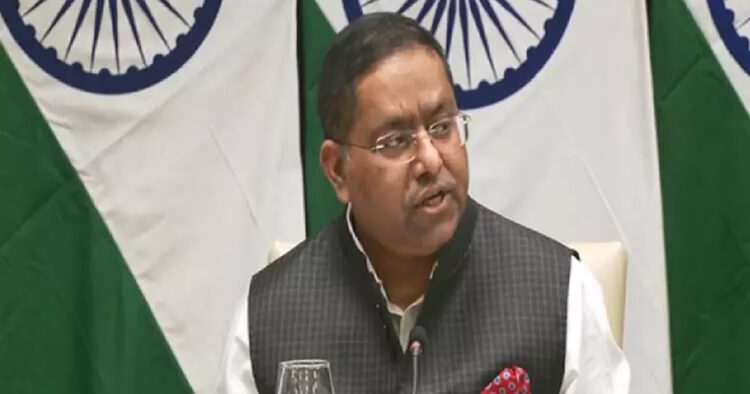Bharat has openly dismissed a report issued by the United States Commission on International Religious Freedom (USCIRF) regarding concerns over religious freedom within the nation.
The USCIRF, a bipartisan US federal government agency, had expressed ongoing worries about religious freedom in Bharat, suggesting a potential interference in the country’s general election. Bharat’s response labeled the USCIRF as biased and accused it of propagandizing, insisting that the organization fails to understand Bharat’s diverse, pluralistic, and democratic ethos.
The USCIRF, known for its annual reports on international religious freedom, reiterated its recommendation for the US State Department to designate Bharat as a “Country of Particular Concern” (CPC) in the context of religious freedom.
Despite the commission’s continuous recommendations, Bharat has not been designated as a CPC by the US State Department. Bharat’s external affairs ministry spokesperson, Randhir Jaiswal, denounced the USCIRF’s efforts, stating that their attempts to interfere in Bharat’s electoral processes would not succeed.
Bharat has frequently criticized reports from organizations like the USCIRF, accusing them of bias against the country. Such reports have been consistently rejected by Bharat in recent years.
The USCIRF’s latest report highlighted concerns over religious freedom violations in Bharat and recommended the designation of Afghanistan, Azerbaijan, Bharat, Nigeria, and Vietnam as CPCs by the US State Department.
The USCIRF’s report for 2024 asserted that religious freedom conditions in Bharat deteriorated in 2023, with the government reinforcing discriminatory nationalist policies and failing to address communal violence disproportionately affecting various religious minorities.
The report specifically cited incidents of violence against Christians, destruction of churches and synagogues, and clashes leading to displacement in Manipur.
Among the USCIRF’s allegations were concerns over the enforcement of laws such as the Unlawful Activities Prevention Act, Foreign Contribution Regulation Act, Citizenship Amendment Act, and anti-conversion laws, which it claimed resulted in the arbitrary detention, monitoring, and targeting of religious minorities in Bharat.
In addition, the USCIRF recommended conditioning financial assistance and arms sales to Bharat on improved religious freedom conditions. Bharat’s response underscores the ongoing tension between the country and international organizations regarding perceptions of religious freedom within its borders.

















Comments